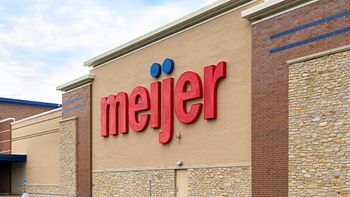
- Pharmaceutical Commerce - October 2009
Bristol-Myers Squibb, Roche Lead on Environmental Sustainability Scoring
Annual surveys rank public companies by environmental, social criteria
They are not quantitative measures of actual environmental performance, but they are significantly more than a vanity prize: by two separate scoring indexes, Bristol-Myers Squibb and Roche Holdings lead in this year’s corporate sustainability indices. BMS won the No. 1 ranking at the Pacific Sustainability Index, compiled by the Roberts Environmental Center at Claremont Colleges (Claremont, CA), and Roche was declared the “sector leader” among a number of healthcare companies tracked by a SAM, a Zurich, Switzerland, boutique investment firm. SAM works with the Dow Jones organization to compile the Dow Jones Sustainability Index, and with STOXX Ltd., a European-based indexer (and partly owned by Dow Jones).
Properly speaking the Pacific Sustainability Index (PSI) is a measure of the quality of sustainability reporting, as evidenced by annual reports that include coverage (and measurement of) a growing list of criteria, including environmental accountability, resources utilization and emissions data, and social responsibility issues such as policies, labor management and human rights principles. Data that are mentioned in companies’ annual reports are evaluated and scored, and an overall figure is obtained.
Roberts Environmental Center uses the Fortune 500 as its starting point, and limits its list to the 30 largest in each of a variety of sectors. For pharma, the 2009 leader is Bristol-Myers Squibb.
Investor evaluation
The Dow Jones Sustainability Index is used nationally and internationally by several investment companies to provide investors with a list of publicly traded stocks by which the performance of better “corporate citizens” can be measured. Like the PSI, it uses social-responsibility as well as environmental-impact criteria. There is not a company-by-company ranking, and healthcare providers are mixed in with pharma in a “healthcare” sector. Pharma companies currently in the healthcare sector (in alphabetical order) are: Abbott, AstraZeneca, Bayer, Genzyme, GSK, J&J, Sanofi-Aventis, Roche, Novartis, Novo Nordisk and Becton Dickinson. As a last step, SAM declared Roche as the sector leader. Genzyme and J&J were 2009 additions to the list.
Do the DJSI companies actually perform better than economy-wide stock indices? The evidence seems to indicate so. Since its inception in 1999, the DJSI index has had an annual return of 13.08%, while the MSCI World Index (a compilation of global stocks) has had an annual return of 8.41%.
“When SAM started the assessments for the DJSI ten years ago, even a significant number of the best performing companies had only vague and ad-hoc processes in place to target sustainability objectives,” says the latest DJSI report. “Today, companies embrace corporate sustainability as a key source of competitive advantage. Management realizes that the implementation of sustainability practices helps mitigate risks and seize opportunities arising from long-term economic, environmental and social trends.”
Articles in this issue
over 16 years ago
Comparative Effectiveness with the Gloves Offover 16 years ago
New effort on collaboration over product serializationover 16 years ago
A small victory for Pharma in EU parallel trade warover 16 years ago
Regenerative medicine coalition gets organizedover 16 years ago
Flu Season Promises to Put a Spotlight on Vaccine Distributionover 16 years ago
NACDS Annual Profile Tracks Declining Number of StoresNewsletter
Stay ahead in the life sciences industry with Pharmaceutical Commerce, the latest news, trends, and strategies in drug distribution, commercialization, and market access.



